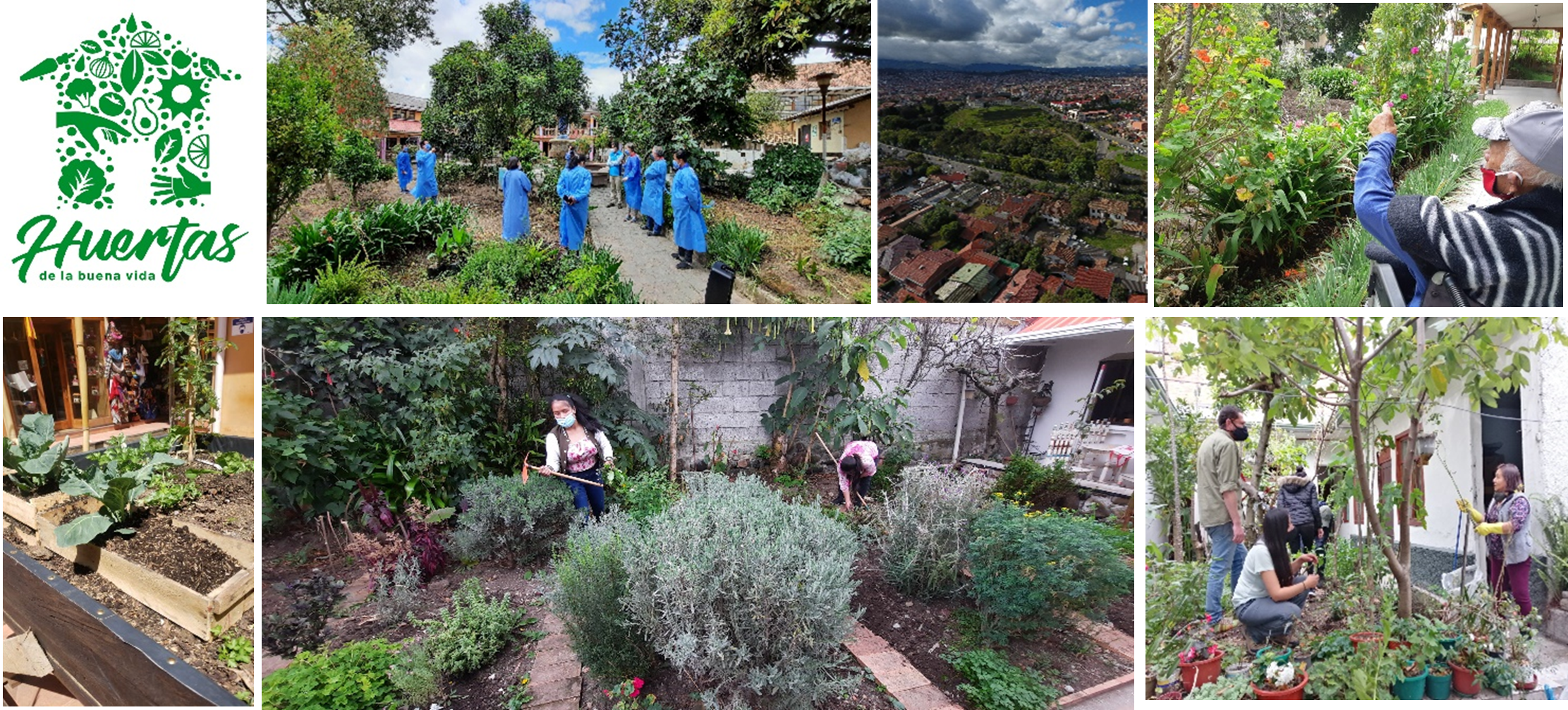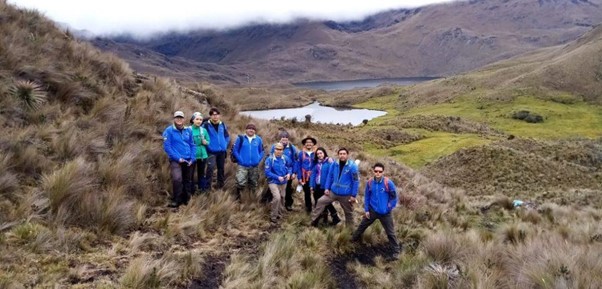CUENCA
ECUADOR
Why RECETAS in Cuenca?
A city with social and economic problems, which particularly affects old people…
%
of urban population lifes in precarian conditions (1)
%
of poor households are composed of one elderly person (2)
%
of older adults do not have access to social security (3)
%
prevalence rate of the older adult population suffering from depression (4)
However, Cuenca sets in an exceptional natural environment, which can be used to treat mental health problems!
The city is perched at 2500 m.o.s.l. and is crossed by four rivers: Tomebamba, Tarqui, Yanuncay, and Machángara. Cuenca borders a natural area and biosphere reserve called “El Cajas”. Its inhabitants have preserved a close relationship with natural elements, especially at the core of the historical area listed by UNESCO as a World Heritage Site.
How will nature-based activities be tested?
The nature-based social prescription menu (NBSP) to be implemented in Cuenca will be product of a co-creation process. The RECETAS Cuenca team will be responsible for the intervention based on the menu, initially randomized and agreed upon with each participant. The NBSP will be tested in a quasi-experimental studies.
The study will focus on measuring its impact on the experiences of loneliness and the quality of life of older adults.
Qualitative phenomenological research will be designed that will include in-depth interviews and a focus group to triangulate the information.
In the local context, is expected the participation of 60 people from the Universidad del Adulto Mayor, the Centro del Adulto Mayor de Cuenca, and gereontologic centres such as the Hogar Miguel León is foreseen.
Example of good practices

The HBV is a communitarian initiative initiated in 2018. It was fostered by the University of Cuenca through a participatory process with the neighbors of El Vado, in hand with local institutions. The process creates conditions that contribute to the sustainable welfare of the traditional residents into the Historic Center of Cuenca, relying on cultural and natural heritage. At the moment, the project has joined more than 12 public institutions, civil society, and residents of El Vado in collaborative management. It resulted in a network of urban heritage gardens (6 gardens) with therapeutic uses, heritage protection, and food security.

Sangay Club emerged in the city of Cuenca more than 50 years ago. It encourages participants to walk, respect, and care for nature in the mountains of the Andes Region. Sangay Club open space for a diversity of people of different ages that make up a community of high social value in the city of Cuenca. The same club states that: “the participation of our fans and above all manifest joy, health, satisfaction, love, feeling, the happiness of what it means to be in these places and consider them gifts of life”.
About Cuenca
Cuenca is located in the Andean region in the South of Ecuador, this intermediate city is the capital of the province Azuay. Locally, Cuenca is one of the Ecuadorian cities that offers conditions for a better quality of life.

City population
400 000

Population density
2,676/km²

City SDG index
72,3

Subjective well-being ranking
#46

Average Temperature
12,4°C

Köppen classification
Tropical Ecuatorial
Get in touch
Are you an organization based in Cuenca and dealing with these topics? Do you want to share your experience ? Are you interested in getting involved in RECETAS activities?
Contact us !
Universidad de Cuenca
Director Equipo RECETAS Cuenca
Profesor, Arq. Fausto Cardoso PhD
fausto.cardoso@ucuenca.edu.ec
Investigador Equipo RECETAS Cuenca
Profesor, Dr. David Acurio
david.acurio@ucuenca.edu.ec
Investigadora Equipo RECETAS Cuenca
Profesora, Arq. Gabriela Garcia PhD
gabriela.garcia@ucuenca.edu.ec
Investigador equipo RECETAS Cuenca
Profesor, Antropólogo. Pablo Paño PhD
pablo.panoy@ucuenca.edu.ec

